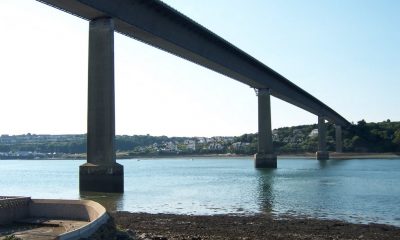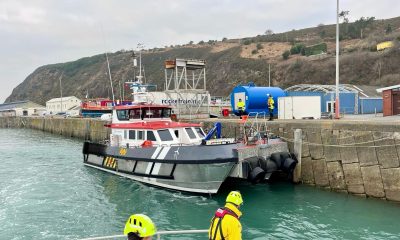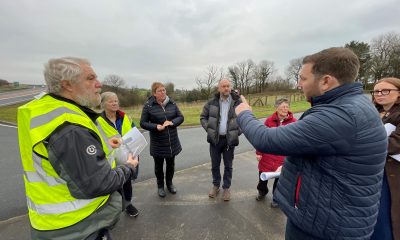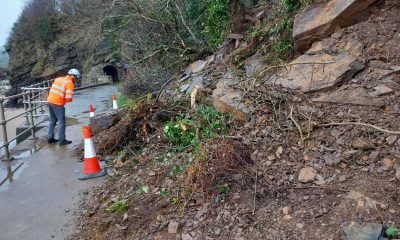Education
Teens explain barriers to activity

LOCAL, cheaper, good quality activities are just a few recommendations made by teenagers who took part in a study by researchers based at Swansea University.
The recommendations made by the teenagers shed light on the barriers to exercise and what they feel could be done to help them engage more in sporting activities.
Physical inactivity is one of the most important issues in public health today, with heart and circulatory disease killing around one in four people in the UK. It has been linked to health issues later in life and is considered a key contributor to increased obesity. Studies have indicated that there is a decline in physical activity in adolescence. There are growing concerns that these young people are spending increasing amounts of time on sedentary activities including watching television, using a computer and playing video games.
The ACTIVE project, funded by the British Heart Foundation, worked with over 70 teenagers from 7 secondary schools in Swansea. It aimed to see whether giving teenagers vouchers to spend on activities of their choice – such as dancing, swimming, karate, skateboarding or BMXing – could reduce the time spent being sedentary, improve fitness, lower the risk of heart disease and improve general health.
As part of the study, the research team wanted to give the teenagers the chance to make their own recommendations to help other young people be more active and carry on being active in the future. The findings were very interesting with teenagers making several recommendations, including:
Lower activity cost without sacrificing quality. The teenagers said that lowering the cost of activities would help them become more active. They recommended that more free activities should be made available.
Local activities. Removing the need to travel to venues would go some way to making physical activity more accessible to teenagers.
Improve the standards of existing facilities. The teenagers who took part in the study all said that their local facilities need to be improved. Spaces, such as the local parks, have fallen into states of neglect and equipment is broken.
Make activities more specific to teenagers. The young people stated that there is very little that specifically invites teenagers to attend. They believed that council run services in particular neglected their age group.
Give teenagers a choice of activities. Teens don’t want to just be restricted to a small range of sports. The activities they suggested were less traditional, for example, dodgeball, trampolining or going to the gym.
Provide activities that teenage girls enjoy. Teenage girls in the study said that if they do not like what is on offer, they will not do it and would actually prefer to be inactive. The girls said they are more likely to be active if they can do activities they enjoy.
Michaela James, Trial Manager for the ACTIVE project, at Swansea University Medical School, commented: “It is clear that what is currently available for teenagers is not meeting their wants and needs. The ACTIVE Project is aiming to address this by empowering teenagers and giving them a voice. We are very proud to be working collaboratively with this group to help them become more active.”
Adam Fletcher, Head of British Heart Foundation (BHF) Cymru said: “Levels of physical inactivity and sedentary behaviour amongst young people in Wales remain stubbornly high, and increasing participation in physical activity is essential to improve our children’s health and preventing future cardiovascular disease.
“There are lots of different ways people can keep active, from playing football to dancing. The important thing is to find a form of exercise you enjoy, so that you make time for it in your weekly routine.”
“The ACTIVE research project is providing new insights and a better understanding of the barriers to physical activity by teenagers and this report includes some great recommendations into developing new ways to engage with teenagers and to tackle the growing problem of inactivity in young people.”
Community
County Show calling all Pembrokeshire parents and teachers

SCHOOLCHILDREN from across the county are invited to the next Food Story event, Nutritious, Delicious & Local, which will take place at the Pembrokeshire County Showground on Wednesday, March 5, and Thursday, March 6, 2025.
This exciting event, suitable for pupils from Year 2 to Year 11, will offer a hands-on learning experience focusing on health and well-being, as well as the role of science, technology, engineering, and mathematics (STEM) in local food production. Topics will include how weather and climate impact farming, the growth of crops, and the daily challenges faced by farmers.
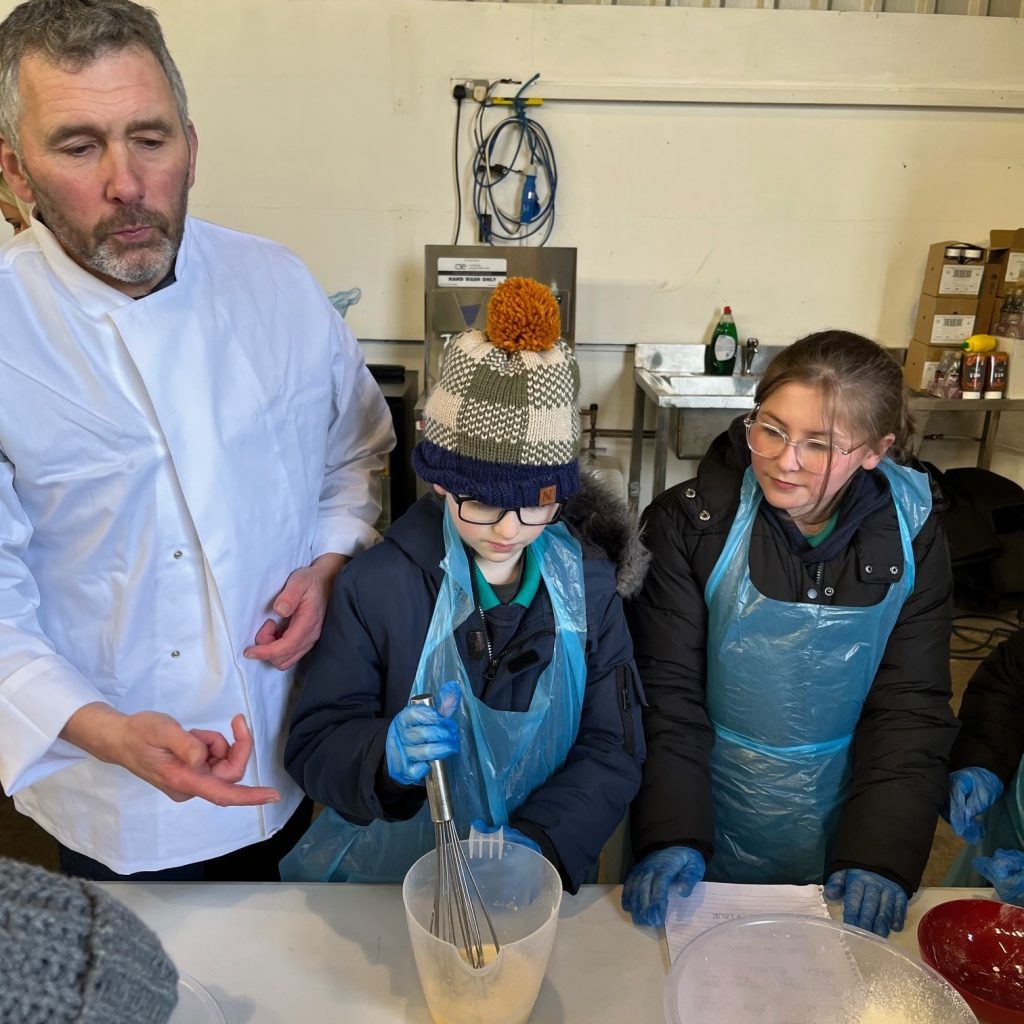
Children will also have the chance to cook and sample local produce, making it a truly interactive and educational experience.
All primary and secondary schools across Pembrokeshire will receive an invitation and booking form to attend. If teachers have not received the email and would like to participate, they are encouraged to contact the Pembrokeshire Showground Office at [email protected] as soon as possible.
Don’t miss this opportunity to inspire the next generation about the importance of nutritious, local food!
Education
Former Haverfordwest High student wins South Hook LNG scholarship

A PROMISING local law student, Alisha Akhtar, has been awarded South Hook LNG’s 2024 Scholarship, receiving £5,000 to support her academic journey. Alisha, a former Haverfordwest High pupil, is in her final year of an LLB Law degree at the University of Salford, Manchester, and is preparing to undertake the Solicitors Qualifying Examination (SQE) in two years.
The annual South Hook Scholarship is designed to encourage academic excellence and career ambition among Pembrokeshire students. Candidates go through a rigorous selection process that includes a written application and an informal interview, demonstrating South Hook’s commitment to supporting local education.
During a ceremony held at South Hook LNG, Alisha was presented with her award by the South Hook team. Speaking about the scholarship, she said: “My late parents worked tirelessly to provide opportunities they never had. This scholarship brings me closer to my goal of pursuing a career in law and honours my parents’ sacrifices. I am deeply grateful to South Hook LNG for believing in my potential.”
Hamad Al Samra, General Manager of South Hook LNG, praised Alisha’s determination, saying: “We are continually inspired by Pembrokeshire students. Alisha’s focus and commitment stood out, and we are pleased to support her in achieving her aspirations.”
South Hook LNG encourages local students pursuing higher education in engineering, science, or business-related fields to apply for their scholarship programme. Details for the 2025 award will be available on the company’s website in September.
Photo caption: Alisha Akhtar, South Hook LNG’s Scholarship recipient of 2024, with members of the South Hook team responsible for assessing the applications. (Pic: Supplied)
Education
New resource to support Welsh medium pupils
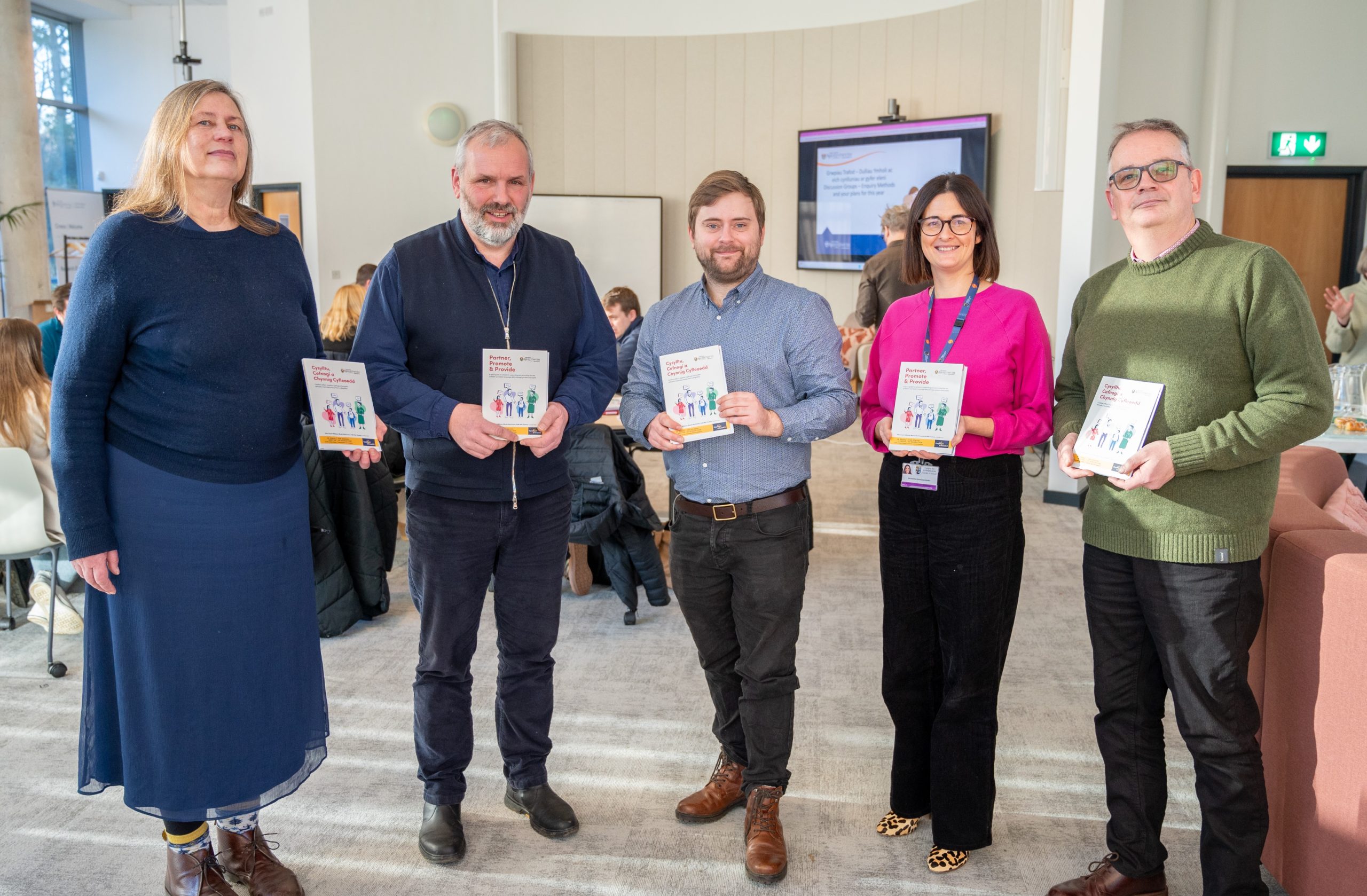
EDUCATION researchers have published a special booklet to support pupils in Welsh medium schools from homes where the language is not spoken.
Entitled Partner, Promote and Provide, the booklet was co-created in workshops led by Aberystwyth University which brought together education partners from Ceredigion and Powys, with input from parents and pupils.
It builds on a series of research studies by the School of Education which began during the Covid-19 lockdowns in 2020 and which explored the impact of the pandemic on pupils along with the additional challenges facing Welsh-medium schools in extending support to children from non-Welsh-speaking homes.
Dr Siân Lloyd-Williams Director of Research at Aberystwyth University’s School of Education, said:
“Based on the studies we carried out between 2020 and 2024, it was clear we needed to continue the work so that we could evaluate, identify and measure the impact of our recommendations on supporting non-Welsh speaking families.
“We set out to organise a series of workshops, bringing together representatives from the local education authorities, teachers, parents and others to hear their experiences and gather evidence. As a result, we have co-created a special booklet that teachers can use to support pupils from non-Welsh-speaking homes who attend Welsh medium schools.”
Another member of the research team at Aberystwyth School of Education, Dr Rhodri Aled Evans, said:
“This is an example of effective and purposeful collaboration between academics and practitioners on the ground. We hope this booklet, together with the recommendations of our previous studies, will be a valuable resource for the education sector and beneficial for teachers, pupils and families alike.”
The Director of Education for Ceredigion County Council, Elen James, said:
“It has been extremely valuable to collaborate with the University’s researchers to create dedicated resources that offer practical help on how to further improve the experiences of Welsh-medium pupils from non-Welsh speaking homes. This work is important and an excellent starting point for further collaboration. We look forward to developing the project further in the future.”
The Partner, Promote and Provide booklet was launched at a training event for teachers held at the University on 16 January 2025 and can be downloaded from the University’s website as a PDF or hard copies can be sent on request.
Pictured: L to R: Susan Ferguson (Research Impact and Knowledge Officer, Aberystwyth University), Prysor Davies (Interim Head of the School of Education, Aberystwyth University), Dr Rhodri Evans (Lecturer in Education, Aberystwyth University), Rhiannon Salisbury (teacher), Alwyn Ward (Ceredigion County Council)
-

 Crime6 days ago
Crime6 days agoMan charged with attempted murder after child found in critical condition
-

 Crime6 days ago
Crime6 days agoMilford paedophile caught with 1600 indecent images of children avoids jail
-

 Top News4 days ago
Top News4 days agoRail worker jailed for biting man’s lip off in Pembrokeshire pub
-

 Crime4 days ago
Crime4 days agoDrug dealers caught trafficking cocaine worth £2,000 to Steynton addict
-

 Crime3 days ago
Crime3 days agoMan in custody after admitting sexual assault of boy under 13
-

 Crime6 days ago
Crime6 days agoAir ambulance called to Parc Prison as inmate suffers ‘severe medical episode’
-

 News6 days ago
News6 days agoNeyland Town Council conflict deepens as Extraordinary Meeting called
-

 Crime3 days ago
Crime3 days agoHotelier admits assault on partner at Fishguard venue




























